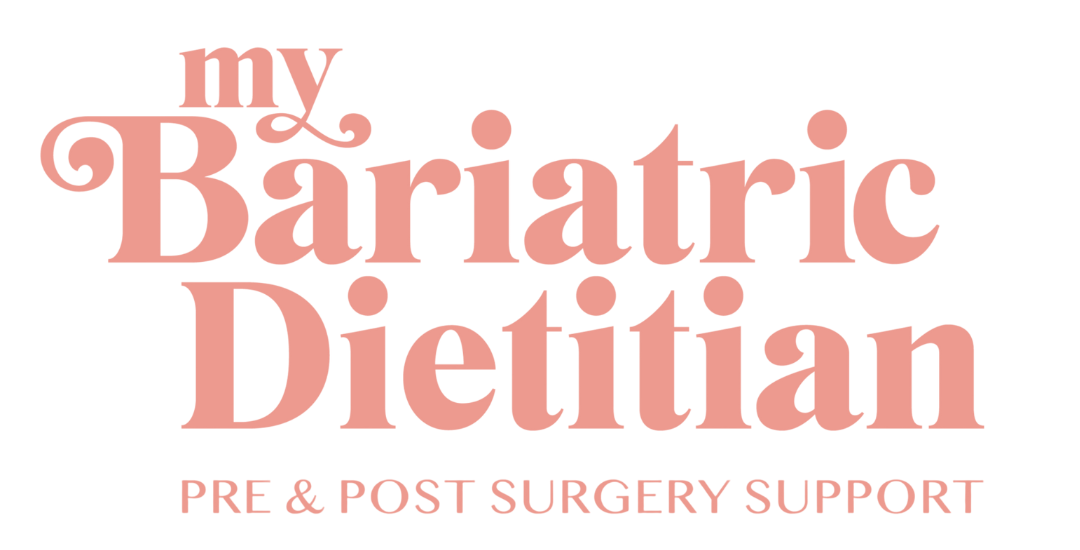How To Stay Full Between Meals After Weight Loss Surgery
While bariatric surgery can be a fantastic tool for helping to reduce the overall volume of food able to be consumed at a time and impacting appetite regulating gut hormones, some individuals are still challenged by uncontrolled hunger and cravings. The dietary choices and behaviors that patients practice can have a direct impact on their hunger and satiety before and after meals.
8 Ways to Stay Satiated After a Meal
1. Eat protein-rich foods
Most bariatric patients know that protein is the focal point of a weight loss surgery meal plan. While it's important for supporting skeletal muscle, organs, and hormones, it is also a great tool to help make you full quicker and keep you full longer.
The American Society of Metabolic and Bariatric Surgery recommends at least 60-80 grams of protein per day. Healthy options include lean meat, poultry, seafood, low-fat dairy foods, eggs, beans, tofu and other plant-based proteins. To make protein goals easier to reach, it's recommended that patients aim to have protein first with each meal and snack.
Action Step: Begin logging your food intake and keeping an eye on your protein choices- how much/how often you are eating throughout the day?
2. Fill up on fiber-filled carbohydrates
If you find that you can eat larger portions than you once were able, it may be useful to reevaluate the types of foods you are eating. Are you eating mainly carbohydrates? Carbohydrates, especially dry, crunch, overly processed types (i.e. crackers, chips, popcorn, granola bars, etc.) do not have the same effect on satiety and are often easier to graze on.
Instead, carbohydrates high in fiber may help to improve satiety as they take up more room in the stomach and take longer to digest. Fiber-filled carbohydrates include foods such as dark leafy greens, broccoli, cauliflower, carrots, peppers, green beans, asparagus, squash, and berries. These foods should be eaten after your protein.
Whole grain products are also another source of fiber, but due to their higher carbohydrate and starch content, these should be eaten last at a meal. This would include whole grain pastas and breads. Additionally, high carbohydrate/starch foods such as potatoes, rice, corn, and beets should be eaten after both protein and lower starch vegetables.
Action Step: Women- aim for 25 grams of fiber per day, Men- aim for 38 grams of fiber per day. (Note: Aim for as much fiber from food as you can. If needed, you can add in additional fiber supplements to reach these targets.)
3. Stick to solid food choices
As patients get farther out from surgery they begin to notice that liquids, such as protein shakes, don't keep them full as long as they once did. Liquids pass more easily though the stomach pouch and may not impart a feeling of fullness. The longer a food is in the stomach pouch, the longer someone may feel full. If the liquid shakes or soft foods are no longer as satisfying or filling, it may be helpful to switch to a solid form of protein such as a hard-boiled egg, deli meat with string cheese, or smoked salmon with cream cheese on cucumber slices.
Action Step: Consume foods whole and in solid form to achieve and extend satiety.
4. Stay hydrated
Feelings of hunger and thirst are regulated by the same area of the brain and can often be confused. By consuming appropriate amounts of water and hydrating fluids between meals, you will have less of an opportunity to feel increases in hunger between meals and this may help to reduce or prevent snacking or grazing behavior.
Action Step: Set a goal to drink more between meals. Aim for at least 48-64 ounces of hydrating fluids per day.
5. Eat mindfully
There is a cognitive component to achieving satiety; meaning the way we think about food impacts our satiety. Studies have demonstrated that an individual's expectation of satiety after consuming a particular food or meal can actually have an impact on appetite-regulating gut hormones following the meal.
Additionally, once we begin eating, it can take time for our brain to register that it is no longer hungry. Taking small bites, chewing thoroughly, savoring the flavor of the food, and pausing between bites are ways to allow our stomach and our mind to have the time to talk and register if we like what we're eating and how much we actually need of it.
Action Step: Eat slowly and without distractions. Think of food in a positive and functional light. Be observant of the satiating aspects of different foods.
6. Get enough sleep
Many research studies have shown that a lack of sleep or sleep deprivation may alter gut hormones by increasing hunger or reducing a feeling of satiety the following day. Additionally, research from the National Weight Control Registry shows that individuals who have successfully maintained weight loss long term are more likely to report greater than 6-7 hours of sleep per night.
Action Step: Work on improving the duration and quality of your sleep to support weight loss and weight maintenance efforts.
7. Manage stress
Just as sleep can effect our weight, so can stress. This mental and emotional state can lead to increased levels of the stress hormone, cortisol. This hormone can cause increases in insulin and decreases in blood sugar, potentially leading to increased cravings or hunger- especially for foods high in fat, sugar, or salt.
Action Step: Practice non-food methods of dealing with stress (i.e. talking with a friend, going for a walk, practicing meditation, deep breathing, etc.)
8. Eat at regular intervals
People who skip meals or eat erratically tend to eat more at later points in the day or night. Additionally, due to blood sugar imbalances, they are more likely to choose less healthy options if they have gone a long period without eating. Eating protein and fiber-filled carbohydrate meals on a consistent basis helps control hunger and helps better meet nutritional targets.
Action Step: Make sure that you pack meals or snacks for when you are away from home. Aim to eat every 3-5 hours and aim to avoid skipping meals.
What are some of your favorite satiating meals and snacks? Share in the comments below!

